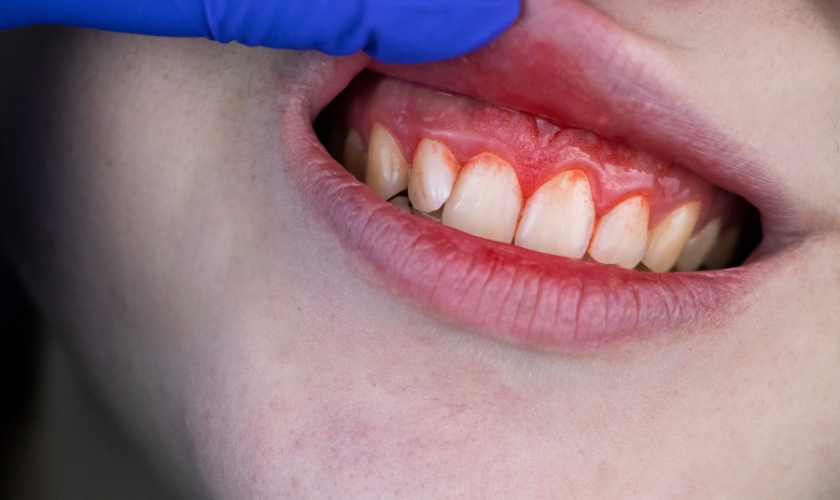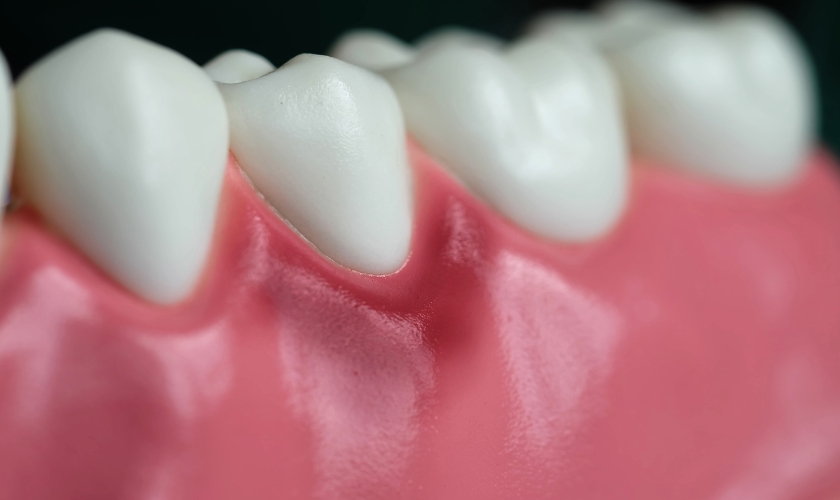
Periodontal disease is common in nearly half of all American adults, according to the Centers for Disease Control and Prevention (CDC). It’s not simply painful gums—it can catch you off guard on your oral health, on your day-to-day comfort, and even on your overall health. If you’ve been given this diagnosis, you might be asking yourself what to do next. The good news is that having periodontal disease does not mean you should lose hope for your mouth. With the right advice, you can manage symptoms, save your teeth, and still be confident about your smile.
What Does Living with Periodontal Disease Mean?
Periodontal disease is a long-term infection of the gums and bone that support your teeth. It can begin with gingivitis—bleeding, swollen, red gums. If not treated, it will progress to its more serious form (periodontitis) that threatens the stability of your teeth.
Experiencing periodontal disease is more than simply treating painful gums. It also includes comprehending how habits of everyday life, dental visits, and treatment timelines interact to prevent further damage. People who are proactive in controlling their condition realize they can maintain a healthy and functional smile for years.
Signs That Periodontal Disease Needs Attention
Early detection is required. Some of these may seem insignificant at first, yet they can be an indication of something serious developing in the background. Common symptoms are:
- Persistent halitosis
- Gum bleeding on the brush or floss
- Loose or mobile teeth
- Sick gumlines that reveal some of the tooth
If you are noticing any of these issues, especially simultaneously, it is worth speaking to a dentist about care options. Failure to treat these changes can make future treatment more difficult.
The Role of Professional Care
Dentists use different approaches depending on how developed the disease is. At the beginning, scaling and root planing (deep cleaning below the gum line) most likely reduces bacterial deposits. In more severe instances, surgery or maintenance sessions by a periodontist are required.
Prompt treatment of gum disease in Metairie is essential. Regular checkups enable dentists to monitor bone density, reduce the risk of infection, and refine treatment strategies before complications arise. Regularity with these appointments has the most significant effect on long-term success.
Daily Grooming Habits That Promote Healthier Gums
While professional attention is the beginning, your daily life is equally critical to maintaining command over the condition. Patients generally benefit from:
- Brushing teeth twice daily with a soft-bristle toothbrush
- Cleaning between teeth with interdental cleaners or water flossers
- Rinsing with an antimicrobial mouthwash as directed by a dentist
- Choosing a healthy diet with zero to minimal sugars
American Academy of Periodontology studies highlight that smoking and a bad diet significantly enhance the risk of having advanced gum disease. Performing health changes at home supports delaying disease progression and overall health.
The Connection Between Gum Health and Overall Health
Gum disease does not remain in your mouth. Science shows connections between advanced gum disease and conditions such as diabetes, heart disease, and lung infections. That is why periodontal health is included in maintaining your overall well-being.
When patients are committed to their diagnosis, they find benefits besides having healthier gums, such as feeling more confident when chewing, speaking, and smiling without discomfort.
Having periodontal disease requires ongoing care, but it doesn’t control your future smile. With professional care and daily commitment, you can keep symptoms under control, protect your teeth, and preserve overall health.
If you’ve noticed changes in your gums or are currently managing this condition, don’t wait. Schedule an appointment with Gallagher Family Dentistry today to discuss treatment options that fit your needs. Protecting your oral health now can make a meaningful difference for years to come.





